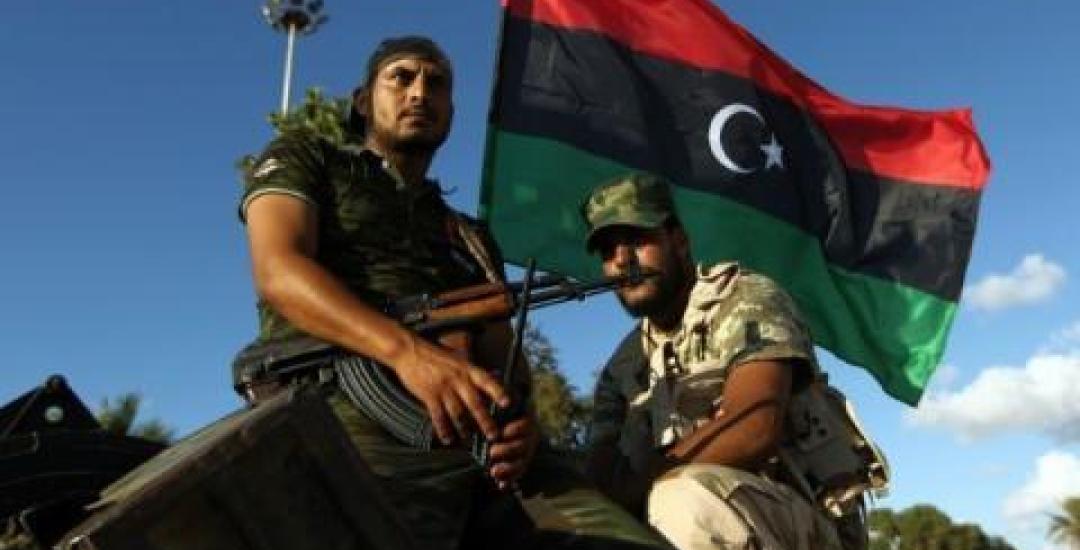
The UN Working Group on Arbitrary Detention has recognized the arbitrary nature of the deprivation of liberty of Libyan citizen Ali Suleiman Masoud Abdel Sayed and stressed the responsibility of the Libyan government for the violations committed against him.
During its 97th session, the Working Group issued its Opinion on the detention of Abdel Sayed, whose case had been submitted by Alkarama in a communication dated 27 March 2023.
Disappeared following his arrest
Abdel Sayed was arrested on 17 August 2016 at 10 p.m. on a public road in Ain Zara (south of Tripoli) by men in military uniform claiming to be from the 8th Security Division of the RADAA militia commanded by Haitham Tadjouri, who officially declares himself attached to the Ministry of Interior of the Government of National Accord.
The next day, his son tried to find out where he was being held, including by going to the militia headquarters, but could not confirm that he was there. He then approached several authorities, including the Ministry of the Interior and the Prosecutor General's Office, to find out about his father's fate, but never received a response.
On 16 March 2017, Alkarama, on behalf of the family, submitted an urgent appeal to the United Nations Working Group on Enforced Disappearances for his immediate location. However, the Libyan authorities have never responded to the Working Group's communications.
It was only a year after the arrest that Abdel Sayed's family was able to learn, through messages he managed to send through released fellow detainees, that he was alive and that he was "being held in a secret centre controlled by a militia". It was only in May 2020, following his transfer to Al Ruwaimi prison, that the victim was able to receive a visit from his family, during which he revealed that he had been tortured while in detention.
On 14 April 2021, five years after his arrest, Abdel Sayed was first brought before the Prosecutor General, who then notified him that he was accused of "concealment of facts and documents" without further explanation. On 17 December 2022, Abdel Sayed was finally brought before the 3rd Criminal Chamber of the Tripoli Court, which acquitted him of all charges by judgment dated 20 February 2023.
Despite this court decision, which became final, he was not released and was taken back to the Mitiga detention centre, controlled by RADAA militias.
The Working Group recognizes the arbitrariness of the detention
In its Opinion, the Working Group noted that there is no legal basis for Abdel Sayed's detention, as the authorities did not present any arrest warrant or inform him of the charges against him at the time of his arrest and until he was brought before an authorized judicial authority after five years of detention.
The UN independent experts have acknowledged that Abdel Sayed has been forcibly disappeared from the time of his arrest until his detention was officially recognized, which is a particularly aggravated form of arbitrary detention. Finally, it has been pointed out that his continued detention despite the existence of a judicial decision of acquittal also renders his deprivation of liberty arbitrary.
In addition, the Working Group found several violations of the victim's right to a fair trial, including the right to be tried within a reasonable time. The experts also stressed that Abdel Sayed's denial of his right to receive visits and to have access to a lawyer constitute violations of his human rights.
The experts expressed "concern that Mr. Abdel Sayed has been and continues to be arbitrarily deprived of his liberty, even after he has been acquitted of all charges against him." They therefore reminded the Libyan government that "the obligation to respect international human rights standards is incumbent on all organs, officials and agents of the State, as well as on all other natural and legal persons."
Finally, the Working Group urged the Government to "take the necessary measures to remedy without delay the situation of Mr. Abdel Sayed and to bring it into conformity with the relevant international standards, including those set out in the Universal Declaration of Human Rights and the International Covenant on Civil and Political Rights."
The Libyan authorities have six months to provide information on the measures it will take to implement the recommendations made in the Opinion.
